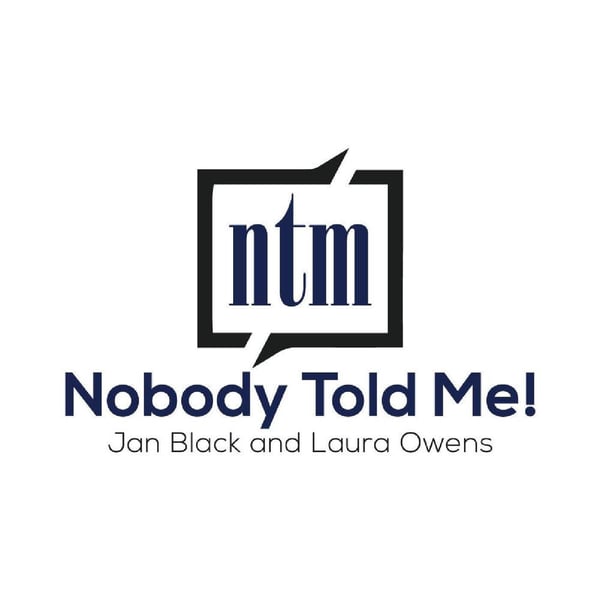Katy Milkman: ...that the path to expect requires you to enjoy the journey
Nobody Told Me!
Nobody Told Me!
4.2 • 671 Ratings
🗓️ 16 October 2021
⏱️ 33 minutes
🧾️ Download transcript
Summary
Most people are trying to change one habit or another for the better. They’ve probably tried to change before, but without much luck. Our guest on this episode, Professor Katy Milkman, is an award-winning behavioral scientist at The Wharton School.
Katy’s research explores ways that insights from economics and psychology can be used to change behaviors for good. She’s the author of a new book on that topic called, How to Change: The Science of Getting from Where You Are to Where You Want to Be. Her website is katymilkman.com.
******
Thanks to our sponsors of this episode!
--> Aurate: we love this modern, minimalist, and affordable jewerly! They rarely run sales, so we're honored that they are offering one to our listeners! Go to http://www.auratenewyork.com/nobodytoldme and use promo code 'nobodytoldme' to get 20% off with no minimum order.
--> AirMedCare Network (AMCN): add inexpensive Fly-U-Home coverage to your AMCN membership so that if there's a medical emergency, you can make the call to be transported back to your local hospital—closer to your own doctor and family. Fly-U-Home takes care of absolutely everything from hospital A to hospital B. No bills. No paperwork. It’s a smart way to reduce stress—and put control of your care in your hands. Sign up for Fly-U-Home today and receive up to a $100 eGift Card. by going to airmedcarenetwork.com/tellme and use offer code TELLME.
Learn more about your ad choices. Visit megaphone.fm/adchoices
Transcript
Click on a timestamp to play from that location
| 0:00.0 | Welcome to Nobody Told Me. |
| 0:13.5 | I'm Laura Owens and I'm Jan Black. |
| 0:15.9 | Most people are trying to change one habit or another for the better. |
| 0:19.5 | And they've probably tried to change before, |
| 0:22.2 | but without much luck. Our guest on this episode, Professor Katie Milkman, is an award-winning |
| 0:27.4 | behavioral scientist at the Wharton School. And Katie's research explores ways that |
| 0:32.5 | insights from economics and psychology can be used to change behaviors for good. |
| 0:37.9 | She's the author of a new book on that topic called How to Change the Science of Getting |
| 0:43.3 | from Where You Are to Where You Want to Be. |
| 0:45.9 | Katie, thank you so much for joining us. |
| 0:48.2 | Thanks so much for having me. |
| 0:49.5 | I'm wondering how your background in engineering affects your approach to this topic of change. |
| 0:56.8 | I think it has a big impact. And I love that question. It isn't something I realized was shaping |
| 1:02.9 | the way I approached the topic for many years. And actually, when I sat down to write this book |
| 1:08.7 | and looked back at the different discoveries that I |
| 1:12.1 | had made and the discoveries my colleagues had made that I found most exciting and most useful, |
| 1:17.2 | I realized there was a common theme, which was that each of those discoveries really |
| 1:23.5 | harnessed an understanding of what the forces of opposition to change were and and tailored a |
| 1:29.6 | solution that was well suited to countering those forces. And an engineer is trained to think about |
| 1:37.3 | the world in terms of, you know, forces and counter forces to design with an understanding of |
| 1:43.5 | the environment that they're up against. |
| 1:46.1 | And what I realized is that the best work on behavior change has that exact structure as well. |
... |
Please login to see the full transcript.
Disclaimer: The podcast and artwork embedded on this page are from Nobody Told Me!, and are the property of its owner and not affiliated with or endorsed by Tapesearch.
Generated transcripts are the property of Nobody Told Me! and are distributed freely under the Fair Use doctrine. Transcripts generated by Tapesearch are not guaranteed to be accurate.
Copyright © Tapesearch 2025.

